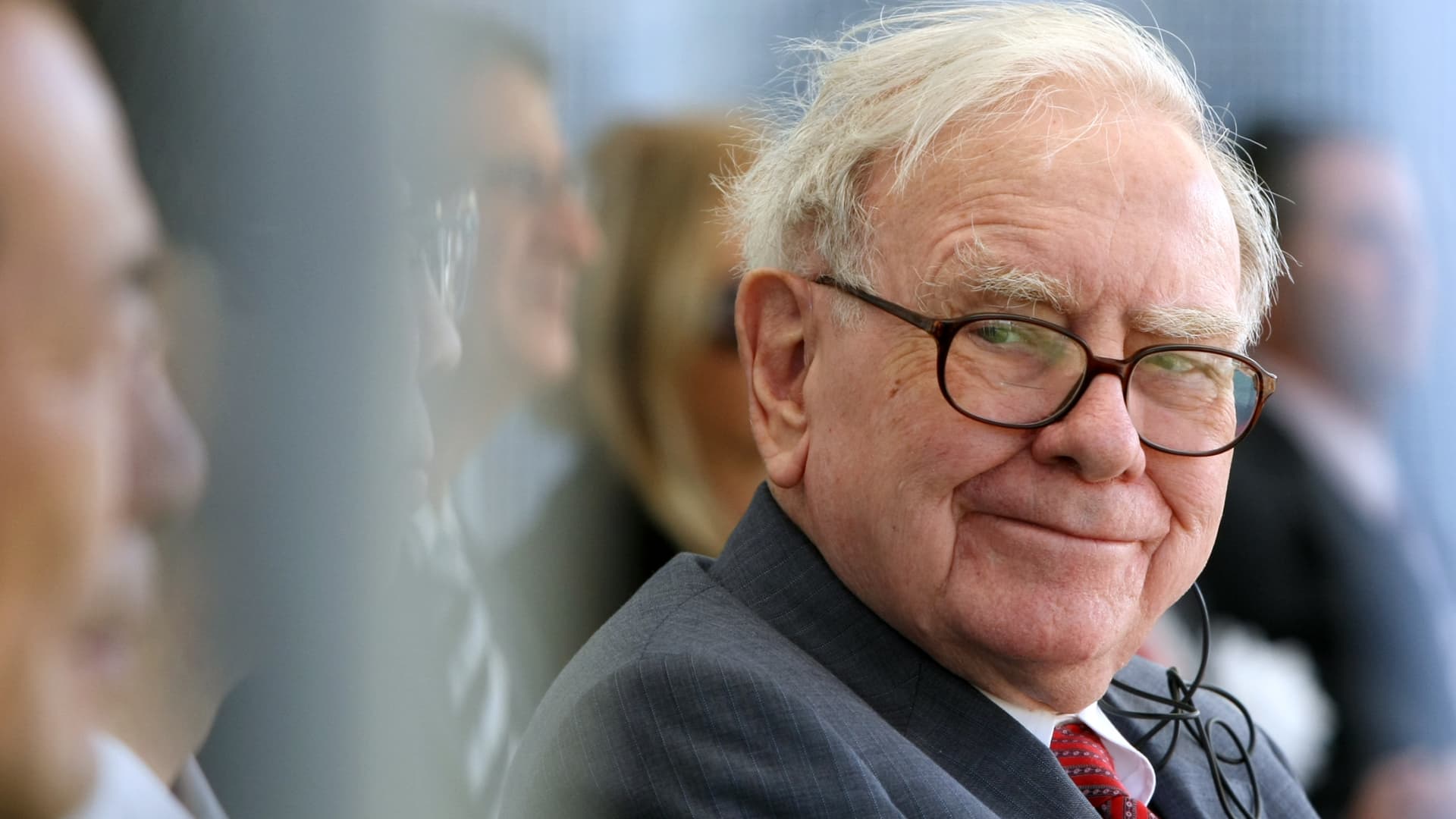Warren Buffett holds a unique place in the hearts and minds of investors all over the world.
A key trait helped him reach such prestige, according to Harvard University leadership expert Bill George: Buffett, the longtime CEO of holding company Berkshire Hathaway, found the “sweet spot” between doing something he’s good at and doing something he actually enjoys.
Achieving that balance makes leaning on your strengths and staying motivated over time easier, says George, a Harvard Business School executive fellow and ex-CEO of medical device company Medtronic.
“To be truly successful, to do anything great, you have to use your strengths,. You can’t just correct your weaknesses,” George tells CNBC Make It. Motivation is equally important, he adds: If your work “doesn’t excite you, it just becomes a time attack.”
“So I think you need both to be truly successful,” he says. “You can get by on one, but you can’t be really successful unless you have both.”
George studied Buffett’s leadership and Berkshire Hathaway’s shareholder meetings ahead of co-writing his 2022 book, “True North: Emerging Leader Edition.” Figuring out what drives you and what you have to offer the world is the first step to achieving Buffett’s level of self awareness, George and co-author Zach Clayton wrote — but that’s easier said than done.
Here’s how to tap into the same sweet spot Buffett found, says George.
Find what motivates you
There are two types of motivation, George says: extrinsic motivation, like a comfortable salary, and intrinsic motivation, like enjoying a job where you get to help people every day.
Both play a role in career longevity. “If you’re just motivated by making a lot of money, it will run out on you. You’ll find that things are very hollow and you don’t actually have the joy you thought you had,” George notes.
Buffett likely has his extrinsic motivations covered: At age 93, he’s the seventh-richest person in the world with an estimated net worth of $135.6 billion, according to Forbes.
His intrinsic motivations, however — sharing his knowledge and wealth with others, including detailed explanations of his investment strategies and a promise to pledge 99% of his fortune to charity — may be what truly drives him, George says.
Buffett didn’t immediately respond to CNBC Make It’s request for comment.
Becoming more successful can start with figuring out your own intrinsic and extrinsic motivations, says George. One potential starting place: Take a few minutes to observe and write down a list of activities and passions you enjoy, and goals you have for yourself, suggests a 2023 blog post from job search platform Indeed.
“Ask yourself what matters to you and why you take the actions that you do,” the blog post advises. “These motivations can be varied, like earning a livelihood or contributing to the progress of a discipline or industry. When you understand why you want to accomplish something, you can use this to motivate yourself.”
Home in on your strengths
Finding a job that fulfills you only gets so far. You also need to figure out a way to apply your biggest strengths to it, so you can excel at it.
Professionals who exercise their strengths every day are six times more likely to be engaged in the workplace, three times more likely to report having an excellent quality of life and 8% more productive, a 2015 Gallup analysis found.
Buffett’s strengths include autonomy, avoiding mistakes and optimism, George and Clayton wrote in their book — plus his keen eye for a good investment, which he started cultivating at age 11. Buffett is also “sloppy” with hands-on management, and doesn’t like letting go of employees or telling others what to do, the billionaire said at Berkshire Hathaway’s 2014 shareholder meeting.
Knowing his weaknesses helped Buffett build a team of executives who can help in those areas, allowing him to focus on what he does best, says George. If you’re not the boss, you can still identify the moments when your weaknesses show up, practice getting better at them and give yourself grace when things get difficult, bestselling author Joseph Grenny wrote for Harvard Business Review in 2017.
Similarly, you can get in tune with your strengths by asking your manager for feedback and paying attention to when you’re most productive — jotting down the task you were doing at that moment. The more you learn, the more you can take on opportunities and projects that better align with your capabilities.
Want to make extra money outside of your day job? Sign up for CNBC’s new online course How to Earn Passive Income Online to learn about common passive income streams, tips to get started and real-life success stories.
Plus, sign up for CNBC Make It’s newsletter to get tips and tricks for success at work, with money and in life.


